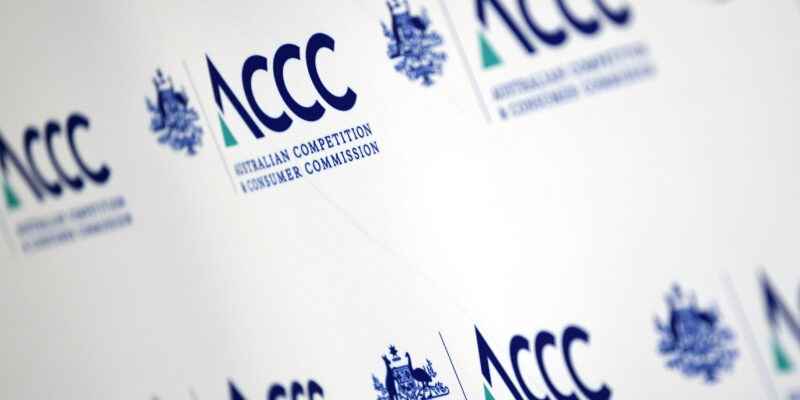ACCC holds off on eConveyancing intervention as reform work paused
Australia’s competition watchdog will not get directly involved in a stalemate that threatens to delay opening up the eConveyancing platform to competitors, as it’s not the relevant regulator.

AUSTRALIA’S competition watchdog has declined to get involved in a stalemate that threatens to delay opening up the eConveyancing platform to competitors, saying it’s not the relevant regulator.
The Australian Registrars National Electronic Conveyancing Council (ARNECC) has been leading the reform to deliver competition in digital settlements, breaking the effective monopoly of Commonwealth Bank-backed PEXA.
Under ARNECC’s previously announced deadlines, interoperability was slated to roll out in NSW and Queensland from July 2025, with full interoperability by December 2025.
However, that timeline was recently thrown into peril when ARNECC warned in June that issues raised by the banking industry were “beyond the remit of state and territories to resolve”.
In the statement, ARNECC admitted the rollout’s progress faced “significant challenges” which state and territory ministers would raise with the federal government and regulators.
PEXA has a near monopoly over Australia’s $300 million eConveyancing market, with 99 per cent of all digital transactions in NSW, Victoria, Queensland, Western Australia, South Australia and the ACT using the PEXA exchange process.
Rival Sympli – a joint venture between legal software provider ATI Global Limited and ASX Ltd – was approved in 2019, but cannot yet seamlessly operate within the existing network platform. Its market share is less than one per cent in NSW and Victoria.
When asked how the impasse could impact the December 2025 deadline for full competition, the Australian Competition and Consumer Commission (ACCC) did not expand beyond its earlier statement that it “does not have a direct or specific regulatory role in relation to eConveyancing reforms”.
But, the ACCC “noted the effects of uncertainty and further delay”.
The timeline to achieve interoperability has been plagued by delays.
In a report last month, the NSW Productivity Commission said ARNECC is “doing too much given its existing expertise and resourcing”.
ARNECC’s limited enforcement powers also raised the risk of non-compliance and hindered critical competition reforms, the Commission said.
Having the ACCC take an overseeing role in policing competition in eConveyancing was among its recommendations, although the ACCC has flagged it doesn’t have capacity for a large role in the eConveyancing market alongside its other regulatory responsibilities.
ARNECC underwent a board shake up in July, replacing outgoing chair Danusia Cameron, the Registrar-General for NSW, with Jenny Cottnam, Registrar-General for South Australia. Ms Cottnam declined to be interviewed.
Established in 2011, ARNECC was created to facilitate the implementation and ongoing management of the regulatory framework for electronic conveyancing of real property in Australia.
The body was set up under an Intergovernmental Agreement (IGA) among state and territory governments, with its members the Land Titles Registrars in each state and territory.
In its July report, the NSW Productivity Commission recommended ARNECC develop a detailed roadmap to achieve the launch of interoperability by December 2025, with financial penalties attached for failing to comply with key milestones.
These would be enforced by ARNECC or individual registrars – likely NSW or QLD, as the first states scheduled to implement interoperability.
“This recommendation should be implemented without delay,” the Commission noted.
The Commission also recommended PEXA be referred immediately to the ACCC for potentially breaching competition laws if it fails to agree to share relevant technical details with ARNECC in a timely way, or otherwise provide ARNECC a formal legal basis on which it claims intellectual property.
Federal Assistant Minister for Competition Andrew Leigh wants states and territories to use all their powers to meet the interoperability deadline, including legislating a timetable with associated penalties.
“I remain optimistic that states and territories will step up and get more competition in this market,” Dr Leigh said.




